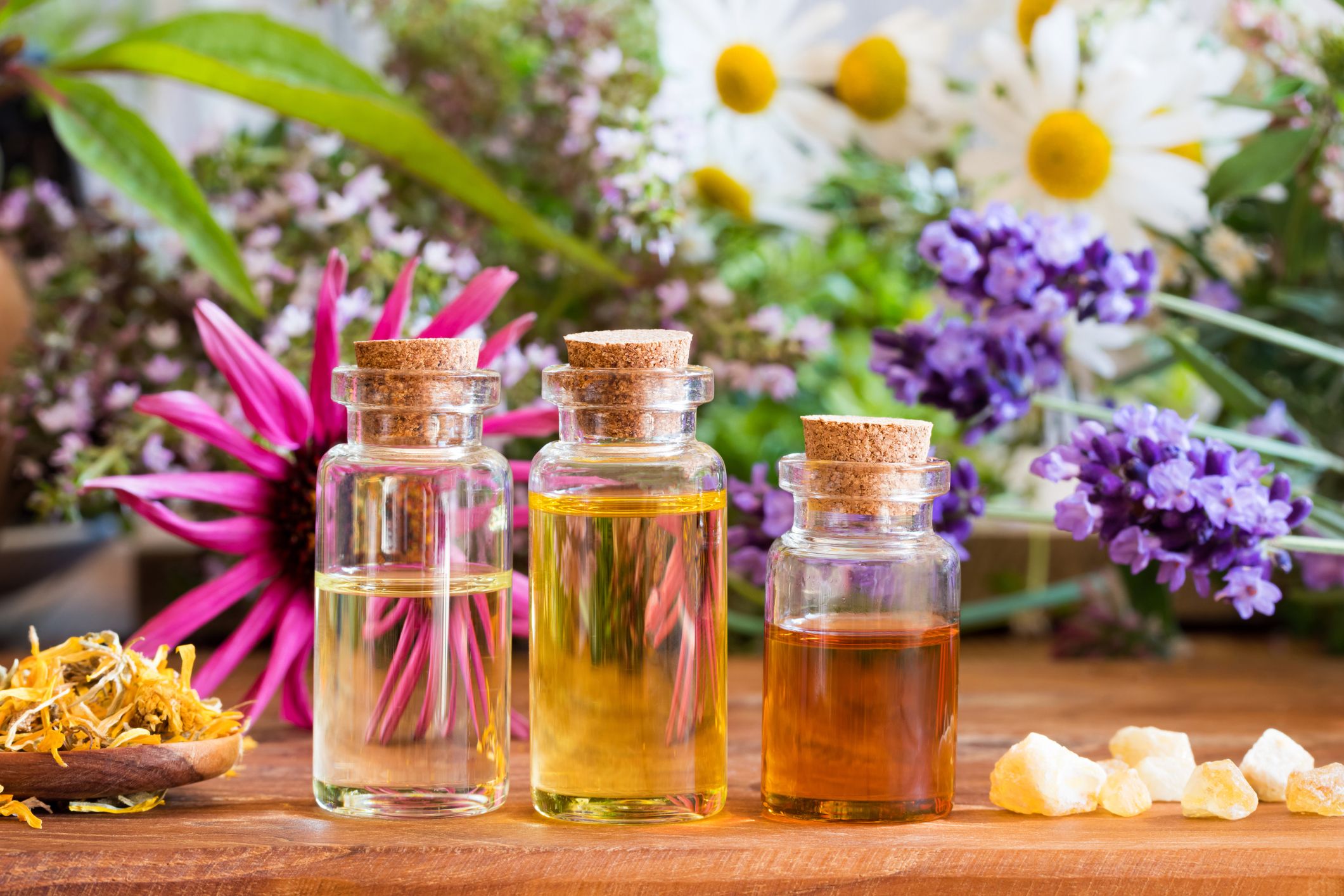Sleep Soundly: Aromatherapy Recipes for Restful Nights
Tired of counting sheep and tossing and turning all night? You're not alone. Millions struggle with sleep issues, and finding a natural solution can feel impossible. But what if I told you that the power of scent could be the key to unlocking a restful night? This article will equip you with the most effective aromatherapy recipes for sleep, helping you drift off naturally and wake up refreshed.
Understanding the Science of Scent and Sleep
The connection between scent and sleep is deeply rooted in our physiology. When we inhale essential oils, the molecules travel through the olfactory system, directly impacting the limbic system – the brain region responsible for emotions, memory, and the nervous system. Certain scents can trigger the release of neurotransmitters like serotonin and melatonin, promoting relaxation and regulating sleep cycles. According to a 2024 study published in the Journal of Alternative and Complementary Medicine, lavender essential oil significantly improved sleep quality in participants with mild insomnia. Therefore, understanding which scents promote relaxation is the first step to better sleep through aromatherapy blends for insomnia.
Top Essential Oils for Sleep and Relaxation
Not all essential oils are created equal when it comes to sleep. Some have stimulating properties, while others are renowned for their calming effects. Here's a breakdown of the top contenders for your natural sleep remedies:
- Lavender: The gold standard for relaxation, lavender boasts calming and sedative properties. It can help reduce anxiety and promote a sense of well-being.
- Chamomile: Known for its gentle and soothing aroma, chamomile is excellent for easing tension and promoting restful sleep. Both Roman and German chamomile are effective.
- Cedarwood: This grounding oil has a woody scent that promotes relaxation and reduces stress. It can also help calm a racing mind.
- Sandalwood: Similar to cedarwood, sandalwood offers a grounding and calming effect. It's often used in meditation to promote mental clarity and peace.
- Bergamot: While a citrus oil, bergamot has unique properties that can help reduce anxiety and uplift mood. Choose bergaptene-free versions to avoid photosensitivity.
- Sweet Marjoram: Known for its calming and soothing properties, often helps to reduce muscle tension that can interfere with sleep
- Valerian Root: Valerian is famous for aiding sleep and is often used when anxiety is a factor.
When choosing essential oils, opt for 100% pure, therapeutic-grade oils from reputable sources to ensure quality and effectiveness. Look for GC/MS (Gas Chromatography/Mass Spectrometry) testing reports, which verify the oil's purity and composition. This is paramount to avoiding synthetic fragrances which can actually disrupt your sleep.
Aromatherapy Recipes for Sleep: Diffuser Blends
Diffusing essential oils is a simple and effective way to introduce their benefits into your sleep environment. Here are some diffuser blends for sleep that you can try:
-
Lavender Dream: This classic blend promotes relaxation and eases you into sleep.
- 3 drops Lavender essential oil
- 2 drops Chamomile essential oil
- 1 drop Cedarwood essential oil
-
Sweet Slumber: A calming and grounding blend for restless nights.
- 3 drops Lavender essential oil
- 2 drops Sandalwood essential oil
- 1 drop Bergamot (bergaptene-free) essential oil
-
Peaceful Mind: This blend helps quiet a racing mind and promotes relaxation.
- 2 drops Lavender essential oil
- 2 drops Sweet Marjoram essential oil
- 2 drops Frankincense essential oil
Instructions for Diffusing: Add the recommended number of drops to your diffuser according to the manufacturer's instructions. Typically, 5-7 drops are sufficient for a standard diffuser. Diffuse for 30-60 minutes before bedtime to create a calming atmosphere.
Aromatherapy Massage for Sleep
Aromatherapy massage for sleep combines the therapeutic benefits of essential oils with the relaxing effects of massage. This can be particularly helpful for individuals experiencing muscle tension or anxiety that interferes with sleep.
Creating Your Massage Oil
The first step is to create a massage oil blend. You'll need a carrier oil, such as jojoba oil, sweet almond oil, or grapeseed oil. These oils are gentle on the skin and help to dilute the essential oils. Never apply essential oils directly to the skin without dilution.
Recommended Dilution Ratio: A general guideline is to use a 1-3% dilution for adults. This means using 1-3 drops of essential oil per teaspoon (5 ml) of carrier oil. For sensitive skin, start with a lower dilution (1%).
Here are a couple of blend ideas for massage:
- Relaxing Blend: Add 3 drops of lavender and 2 drops of chamomile to 1 tablespoon of carrier oil.
- Muscle Relief Blend: Add 2 drops of lavender, 2 drops of sweet marjoram and 1 drop of peppermint to 1 tablespoon of carrier oil. Caution: Peppermint can be stimulating for some. Use sparingly.
Massage Techniques for Relaxation
Focus on areas prone to tension, such as the neck, shoulders, and back. Use gentle, circular motions and apply moderate pressure. You can also massage your temples and forehead for added relaxation.
Self-Massage Tips:
- Warm the oil in your hands before applying it to the skin.
- Focus on your breathing during the massage.
- Create a calm and quiet environment.
Aromatherapy Baths for Sleep
A warm bath infused with essential oils is a luxurious way to unwind before bed. The warm water helps to relax muscles, while the essential oils work their magic on your nervous system. Here’s how to create the perfect aromatherapy bath for sleep:
-
Prepare Your Bath: Draw a warm (not hot) bath. The ideal temperature is around 98-100°F (37-38°C).
-
Dilute Your Essential Oils: Never add essential oils directly to the bathwater, as they will float on the surface and can irritate your skin. Instead, dilute them in a carrier oil, such as jojoba oil or sweet almond oil. Alternatively, you can use a dispersing agent like whole milk or bath salts (Epsom or Himalayan pink salt).
-
Add to Bath: Mix 5-10 drops of your chosen essential oils with 1 tablespoon of carrier oil or 1/2 cup of bath salts. Add the mixture to the bathwater and swirl to disperse.
-
Soak and Relax: Soak in the bath for 20-30 minutes, breathing deeply and focusing on relaxation. Dim the lights and play calming music to enhance the experience.
Bath Blend Suggestions:
- Classic Relaxation: 5 drops lavender, 3 drops chamomile, 2 drops cedarwood.
- Stress Relief: 4 drops bergamot (bergaptene-free), 3 drops frankincense, 3 drops sandalwood.
- Muscle Soother: 4 drops lavender, 3 drops marjoram, 3 drops rosemary (use cautiously, as rosemary can be stimulating for some).
Creating a Sleep-Conducive Environment
While essential oil recipes for relaxation are incredibly helpful, they are most effective when combined with a sleep-conducive environment. Consider these factors:
- Temperature: Keep your bedroom cool, ideally between 60-67°F (15-19°C).
- Darkness: Use blackout curtains or an eye mask to block out light.
- Noise: Use earplugs or a white noise machine to minimize noise distractions.
- Comfort: Invest in a comfortable mattress, pillows, and bedding.
- Routine: Establish a regular sleep schedule and stick to it as much as possible, even on weekends.
Combining Aromatherapy with Other Relaxation Techniques for Sleep
Aromatherapy can be even more effective when combined with other relaxation techniques. Here are a few to consider:
- Meditation: Practice mindfulness meditation to calm your mind and reduce stress.
- Deep Breathing Exercises: Use techniques like diaphragmatic breathing to slow your heart rate and promote relaxation.
- Yoga: Gentle yoga poses can help release tension and prepare your body for sleep.
- Progressive Muscle Relaxation: This technique involves tensing and relaxing different muscle groups to reduce overall tension.
Essential Oil Safety and Precautions
While essential oils are generally safe, it's essential to use them responsibly. Here are some safety guidelines:
| Precaution | Description |
|---|---|
| Dilution | Always dilute essential oils in a carrier oil before applying them to the skin. |
| Pregnancy and Breastfeeding | Consult with a healthcare professional before using essential oils if you are pregnant or breastfeeding. Some oils are not recommended during these times. |
| Children and Infants | Use essential oils with caution around children and infants. Some oils are not safe for young children. Dilute oils even further for children's use. |
| Allergies and Sensitivities | Perform a patch test before using a new essential oil to check for allergies or sensitivities. Apply a diluted amount to a small area of skin and wait 24 hours. |
| Eye Contact | Avoid getting essential oils in your eyes. If this occurs, flush immediately with water or milk. |
| Internal Use | Do not ingest essential oils unless under the guidance of a qualified healthcare practitioner. |
| Photosensitivity | Some essential oils, such as citrus oils, can cause photosensitivity. Avoid direct sunlight for 12-24 hours after applying these oils to the skin. Choose bergaptene-free versions of citrus oils to mitigate this risk. |
Troubleshooting
"I'm not noticing any improvement in my sleep."
It's important to manage your expectations. Aromatherapy is a gentle, natural remedy and may not work overnight. Consistency is key. Also, consider the following:
- Dosage: Ensure you are using the correct amount of essential oil. Start with a lower dosage and gradually increase if needed.
- Quality: Ensure you're using high-quality, 100% pure essential oils.
- Environment: As mentioned before, make sure your sleep environment is conducive to rest.
- Underlying Issues: If you have chronic insomnia or other sleep disorders, consult with a healthcare professional. Aromatherapy can be a helpful adjunct therapy, but it may not be a standalone solution.
Pro Tips
- Layer scents: Experiment with combining different methods, such as diffusing and using an aromatherapy roll-on.
- Create a ritual: Make aromatherapy a part of your bedtime routine to signal to your body that it's time to sleep.
- Keep a journal: Track which blends and methods work best for you.
- Listen to your body: Pay attention to how different scents affect you and adjust your blends accordingly.
FAQ
Q: How long should I diffuse essential oils before bed?
A: Diffuse for 30-60 minutes before bedtime.
Q: Can I use essential oils every night?
A: Yes, you can use essential oils every night, but it's a good idea to rotate your blends to avoid olfactory fatigue.
Q: Can I use essential oils if I have allergies?
A: If you have allergies, perform a patch test before using a new essential oil. If you experience any allergic reactions, discontinue use.
Q: Are essential oils safe for pets?
A: Some essential oils can be toxic to pets. Research the safety of each oil before using it around animals. Keep diffusers out of reach and ensure pets have adequate ventilation.
Q: What are the best essential oils for anxiety and sleep?
A: Lavender, chamomile, bergamot, and frankincense are often recommended for anxiety and sleep.
Q: How to use aromatherapy for better sleep when I don't have a diffuser?
A: You can use an aromatherapy roll-on, add a few drops to a cotton ball and place it near your pillow, or create a linen spray.
By incorporating these essential oils for sleep and aromatherapy techniques into your routine, you can create a calming and relaxing environment that promotes restful sleep. Remember to prioritize safety and experiment to find what works best for you. Now it's your turn! Share your favorite sleep-inducing aromatherapy recipes or questions in the comments below. Your experiences can help others on their journey to better sleep!

